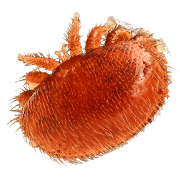Move away from acaricides - Fani Hatjina
In the Radio Varroa Bee News interview on 61 Beekeeper Science Conference in Pulawy in Poland, Fani Hatjina, a COLOSS researcher from Greece, discusses her research focus on Apis mellifera, the honeybee. She conducts studies on protecting local honeybee populations, organic treatment of varroa mites, and the impact of environmental pollution on bees to support beekeepers. Her research is application-oriented, aiming to provide practical solutions for beekeepers.
You have great scientists in Poland
Fani expresses her appreciation for the scientific community in Poland and her positive experiences at the conference in Puławy. She highlights the collaborative efforts with various research centers in Poland, including Puławy, Olsztyn, and Krakow, emphasizing the country’s commitment to environmental conservation and quality of life for both people and bees.
The conversation shifts to the risks associated with pesticides, including acaricides used by beekeepers. Fani explains that even though these chemicals are intended to protect honeybees from parasites like varroa mites, they can have detrimental effects on bee health and contaminate bee products. She advocates for eco-friendly beekeeping practices and reducing chemical use in bee colonies to mitigate these risks.
There is resistance of varroa to acaricides
Fani provides examples of better and worse acaricides, mentioning fluvalinate, coumaphos, and amitraz as commonly used chemicals with varying levels of effectiveness and environmental impact. She recommends alternatives like formic and oxalic acid, which are approved for organic beekeeping and pose fewer risks to bees and the environment.
Fani approve treatment-free beekeeping as a method
The discussion touches on the concept of treatment-free beekeeping, where beekeepers refrain from using chemical treatments. Fanny acknowledges the challenges of implementing this approach, especially in commercial beekeeping, but sees potential for hobbyist beekeepers to adopt treatment-free practices. She emphasizes the importance of sustainable beekeeping methods and the need for a balance between effective pest management and environmental stewardship.
Overall, the interview highlights Fani’s dedication to promoting eco-friendly beekeeping practices and her collaboration with the scientific community in Poland to support bee health and conservation efforts.
🇵🇱 Fani Hatjina to badaczka z Grecji, która zajmuje się pszczołami i ich ochroną. Skupia się na organicznych metodach zwalczania roztoczy dręcza pszczelego oraz wpływie zanieczyszczenia środowiska na pszczoły. Zaleca alternatywne substancje do powszechnie stosowanych chemikaliów (takich jak amitraz czy kiedyś kumafos) na takie które są bezpieczniejsze dla pszczół i środowiska (takie jak kwas mrówkowy i szczawiowy) zatwierdzone do ekologicznego pszczelarstwa. Choć pszczelarstwo bez stosowania środków chemicznych jest wyzwaniem, zwłaszcza w skali komercyjnej, widzi potencjał dla pszczelarzy hobbystów do przyjęcia takich praktyk. Ogólnie rzecz biorąc, Hatjina pracuje nad promowaniem zrównoważonego pszczelarstwa, które łączy skuteczne zarządzanie szkodnikami z troską o środowisko.


Komentarze